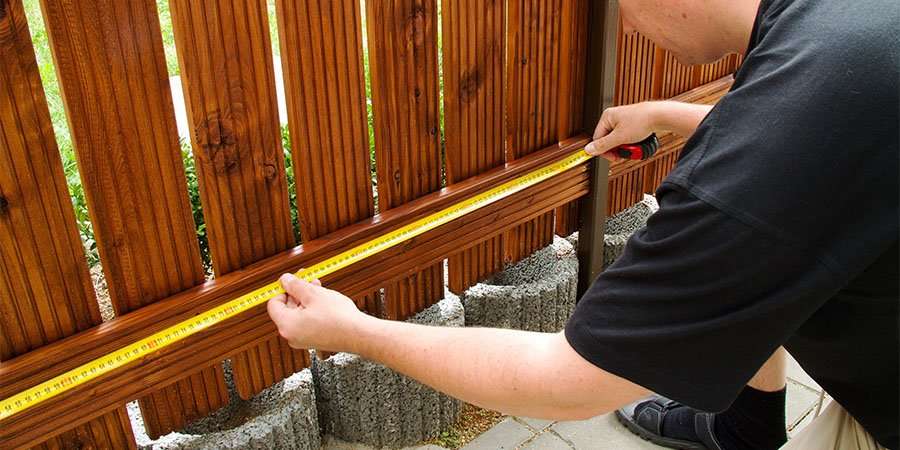Featured
Severe climate can be a significant obstacle for home proprietors, particularly when it comes to shielding secure fencing structures from damage. Choosing the best secure fencing product and layout guarantees your home stays protected and visually pleasing, also in extreme environments. From extreme heat to hefty snow or high winds, below are the most effective fence alternatives customized to different extreme climate condition.
Fencings for Windy Environments.
Fences for Damp and Humid Climates.
Fencings for Snowy and Cold Climates.
![]()
![]()
Fences for Hot and Arid Climates.
Factors to Think About for Weather-Resilient Fence. Long Lasting Structures: Firmly anchor fencing posts in concrete to supply additional stability against severe conditions like high winds or hefty snow. Weather-Resistant Coatings: Using sealants, powder coverings, or galvanization can prolong the life of wood and steel fencings. Proper Spacing: For gusty locations, consider open styles such as chain-link or picket fencings to lessen resistance. Material Longevity: Select products like plastic, light weight aluminum, or composite that are engineered to endure weather extremes with marginal upkeep. Advantages of Selecting Weather-Appropriate Secure Fencing. Buying weather-resistant secure fencing conserves cash in the lengthy run by reducing repair service and substitute prices. It additionally guarantees your building remains visually enticing and safe, despite the climate challenges.
Final thought. For buildings in severe climate conditions, choosing the ideal secure fencing material and style is vital to make sure longevity and functionality. Whether you're taking care of high winds, heavy rains, snow, or scorching heat, alternatives like vinyl, composite, light weight aluminum, and stone fencing deal reputable solutions. Partnering with specialist contractors to examine your building's certain demands will certainly assist you make an informed decision and achieve a durable, weather-resistant fence.
Fencings for Windy Environments.
- Chain-Link Fences. Chain-link secure fencing is an outstanding alternative for windy areas as a result of its open layout, which permits wind to pass through without putting in considerable pressure on the framework. This lessens the threat of collapse and reduces upkeep demands.
- Shadowbox Fences. Shadowbox fencings, constructed from alternating wood panels, incorporate personal privacy and wind resistance. The layout allows wind to pass with while keeping a strong appearance.
- Aluminum Fences. Aluminum fences are light-weight, sturdy, and able to withstand strong winds. They're immune and also low-maintenance to rust, making them a versatile option for numerous climates.
Fences for Damp and Humid Climates.
- Vinyl Fencings. Vinyl fencing is non-porous, suggesting it won't absorb wetness or create mold, rot, or mildew. It's an optimal choice for locations with hefty rainfall or high moisture levels.
- Compound Fences. Composite fencing combines the natural look of timber with the longevity of plastic. It resists bending, splitting, and moisture damages, making it a solid contender in damp environments.
- Steel Fences with Protective Coating. Steel fences treated with powder finishings or galvanization withstand rust and corrosion, making them suitable for moist conditions.
Fencings for Snowy and Cold Climates.
- Concrete or Stone Fencings. These products provide unmatched longevity in chilly climates. They are unsusceptible dampness and stand up to the development and tightening triggered by cold and thawing cycles.

- Plastic Fencings. Vinyl fencings are flexible and resistant to cracking in freezing temperatures. They are likewise simple to clean after snow build-up.
- Pressure-Treated Wood Fences. Pressure-treated wood is particularly made to stand up to moisture and cold-related damage. However, it requires routine maintenance to stay in good problem.

Fences for Hot and Arid Climates.
- Aluminum Fences. Aluminum stands up well to extreme heat and UV direct exposure without warping, splitting, or fading. Its reflective surface area likewise helps it stay cool.
- Vinyl Fences. Plastic secure fencing is a dependable alternative for dry climates, as it withstands heat damages and doesn't dry or fracture imaginable.
- Bamboo Fences. Bamboo is normally heat-resistant and eco-friendly. With correct therapy, it can withstand completely dry environments and retain its stamina and color.
Factors to Think About for Weather-Resilient Fence. Long Lasting Structures: Firmly anchor fencing posts in concrete to supply additional stability against severe conditions like high winds or hefty snow. Weather-Resistant Coatings: Using sealants, powder coverings, or galvanization can prolong the life of wood and steel fencings. Proper Spacing: For gusty locations, consider open styles such as chain-link or picket fencings to lessen resistance. Material Longevity: Select products like plastic, light weight aluminum, or composite that are engineered to endure weather extremes with marginal upkeep. Advantages of Selecting Weather-Appropriate Secure Fencing. Buying weather-resistant secure fencing conserves cash in the lengthy run by reducing repair service and substitute prices. It additionally guarantees your building remains visually enticing and safe, despite the climate challenges.
Final thought. For buildings in severe climate conditions, choosing the ideal secure fencing material and style is vital to make sure longevity and functionality. Whether you're taking care of high winds, heavy rains, snow, or scorching heat, alternatives like vinyl, composite, light weight aluminum, and stone fencing deal reputable solutions. Partnering with specialist contractors to examine your building's certain demands will certainly assist you make an informed decision and achieve a durable, weather-resistant fence.
Latest Posts
Reliable Auto Care at Montclare Auto Repair - Explore Now
Published Apr 19, 25
2 min read
Specials & Discounts: Save on Car Repairs at Montclare Auto Repair
Published Apr 19, 25
2 min read
Bring Your Event to Life at Yesterday's Creekside Tavern
Published Apr 19, 25
1 min read